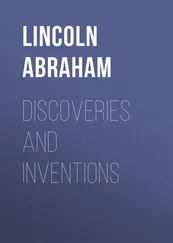Johann Beckmann - A History of Inventions, Discoveries, and Origins, Volume II (of 2)
Здесь есть возможность читать онлайн «Johann Beckmann - A History of Inventions, Discoveries, and Origins, Volume II (of 2)» — ознакомительный отрывок электронной книги совершенно бесплатно, а после прочтения отрывка купить полную версию. В некоторых случаях можно слушать аудио, скачать через торрент в формате fb2 и присутствует краткое содержание. Жанр: foreign_antique, foreign_prose, на английском языке. Описание произведения, (предисловие) а так же отзывы посетителей доступны на портале библиотеки ЛибКат.
- Название:A History of Inventions, Discoveries, and Origins, Volume II (of 2)
- Автор:
- Жанр:
- Год:неизвестен
- ISBN:нет данных
- Рейтинг книги:4 / 5. Голосов: 1
-
Избранное:Добавить в избранное
- Отзывы:
-
Ваша оценка:
- 80
- 1
- 2
- 3
- 4
- 5
A History of Inventions, Discoveries, and Origins, Volume II (of 2): краткое содержание, описание и аннотация
Предлагаем к чтению аннотацию, описание, краткое содержание или предисловие (зависит от того, что написал сам автор книги «A History of Inventions, Discoveries, and Origins, Volume II (of 2)»). Если вы не нашли необходимую информацию о книге — напишите в комментариях, мы постараемся отыскать её.
A History of Inventions, Discoveries, and Origins, Volume II (of 2) — читать онлайн ознакомительный отрывок
Ниже представлен текст книги, разбитый по страницам. Система сохранения места последней прочитанной страницы, позволяет с удобством читать онлайн бесплатно книгу «A History of Inventions, Discoveries, and Origins, Volume II (of 2)», без необходимости каждый раз заново искать на чём Вы остановились. Поставьте закладку, и сможете в любой момент перейти на страницу, на которой закончили чтение.
Интервал:
Закладка:
The other proof which is brought from the scales consists in what is said by Dorion, in Athenæus 116 116 Lib. vii. p. 309.
, that the cyprianus was called also by some lepidotus , or scaly. As nearly all fish have scales, the scales of this species must have been extremely large, as they got that name by way of eminence; and it must be indeed allowed, that the above epithet would suit our carp exceedingly well, as their scales are very large. But this circumstance alone proves nothing, as the Mullus and Mugil have still larger scales; and to the first genus belonged one of the fish most esteemed by the ancients 117 117 This fish was a first-rate article of luxury among the Romans, and was purchased at a dear rate. Juvenal says, “Mullum sex millibus emit, æquantem sane paribus sestertia libris.” See Plin. lib. ix. c. 17. The Italians have a proverb, “La triglia non mangia chi la piglia,” which implies, that he who catches a mullet is a fool if he eats it and does not sell it. When this fish is dying, it changes its colours in a very singular manner till it is entirely lifeless. This spectacle was so gratifying to the Romans, that they used to show the fish dying in a glass vessel to their guests before dinner.
. Strabo mentions the lepidotus among the sacred fish of the Nile; but whether it be the same as that of which Dorion speaks, cannot be determined. It is certain that the Nile contains carp still; for Norden saw them caught at the waterfall near Essuane, which is the ancient Syene. Did we know that the modern Greeks at present call carp cyprini , this would prove more; for it is an undoubted fact that the ancient names have for the most part been retained in Greece. We are assured by Massarius 118 118 Fr. Massarii in ix. Plinii. libr. Castigat. Bas. 1537, 4to.
, that the Greeks still use the name cyprinus ; but Gyllius says that it is employed only by a few: and this is confirmed by Bellon, who mentions all the names of carp which he heard in Greece, and which are entirely different from the ancient 119 119 A great service would be rendered to the natural history of the ancients, if some able systematic naturalist would collect all the Greek names used at present. Tournefort and others made a beginning.
; but he adds, that carp in Ætolia are still called cyprini . Both the before-mentioned circumstances respecting the cyprini agree extremely well with our carp; but as they will suit other kinds equally well, they afford no complete proof, but only a probability which amounts to this, that among the large-scaled fish, carp in particular have a fleshy palate; and it is readily admitted that the ancients were acquainted with all kinds, and chose names for them with more foundation than is done at present.
In opposition to this probability it may be said that Oppian and Pliny reckon the cyprini among the sea-fish, to which kind our carp do not belong. This reply however, which some have indeed made, is not of great weight. In the first place, both these writers seem to have been in an error; for what Pliny says of the cyprini is evidently taken from Aristotle, and the latter does not tell us that these fish live in the sea, but rather the contrary. The Roman author, as Dalechamp remarks, added the words in mari , if they were not added by some transcriber. Oppian as a poet does not always adhere strictly to truth; and he makes more of the freshwater fish of Aristotle to be inhabitants of the sea. In the second place, I consider the distinction made between sea-fish, freshwater fish and those kept in ponds, to be not always very certain or well founded. Who knows whether the greater part of the last may not have been originally sea-fish? This is the more probable in regard to carp, as Professor Foster says that carp are sometimes caught in the harbour at Dantzic 120 120 Philosophical Transact. vol. lxi. 1771, part i. 310.
.
In order to answer the question here proposed, another point may be considered. As all nations at present give these fish the same name, it is probable that it was brought with them from that country where they were first found, and from which they were procured. Cassiodorus, who lived in the sixth century, is the oldest author as yet known in whom that name has been observed 121 121 Variorum, p. 380.
. In a passage where he speaks of the most delicate and costly fish, which at that time were sent to the tables of princes, he says, “Among these is the carpa , which is produced in the Danube.” In the earliest Latin translation of Aristotle, the word cyprinus , as Camus says, is expressed by carpra . In the thirteenth century this fish was called by Vincentius de Beauvais 122 122 Speculum Naturale.
carpera , and by Cæsarius carpo ; and it is highly probable that both these names allude to our carp. By the above passage of Cassiodorus, the opinion that these fish were the cyprini of the ancients obtains a new, but at the same time a very feeble proof; for the cyprinus was found also in the Danube, as we learn from Ælian 123 123 De Nat. Anim. xiv. – Plin. xxxi. sect. 19. – Antig. Car. c. 181.
, who among the fish of the Ister, mentions black cyprini ; and these, according to the conjecture of Professor Schneider, were the black fish of the Danube which Pliny considers as unhealthful or poisonous, and like which there were some in Armenia. Our carp indeed are not poisonous, but Pliny alludes to a particular variety, and what he says was only report, to which something must have given rise, as also to the idea of carp with a death’s head, and the head of a pug-dog, as some have been represented by writers of the sixteenth century. The carpo of Cæsarius appears to have been our carp, because its scales had a very great resemblance to those of the latter; for we are told in the work already quoted, that the devil, once indulging in a frolic, appeared in a coat of mail, and had scales like the fish carpo . The carpera of Vincent de Beauvais is still less doubtful, as the same craft in avoiding rakes and nets is ascribed to that fish as is known to be employed by our carp. Sometimes they thrust their heads into the mud and suffer the net to pass over them; and sometimes they join the head and tail together, and separating them suddenly, throw themselves towards the surface of the water, and springing often four or five feet above the net, make their escape.
But whence did this name arise? The origin assigned by Vincentius, or the anonymous author of the lost books De Natura Rerum, like another mentioned in ridicule by Gesner, is too silly to be repeated. More learned at any rate is the derivation of Menage, who traces it from cyprinus , which was afterwards transformed into cuprinus , cuprius , cuprus , cupra , curpa , and lastly into carpa . For my part, I am more inclined to derive it from a dialect which was spoken on the banks of the Danube, and to believe that it was brought with the fish from the southern part of Europe; but I am too little acquainted with that dialect to be able to render my conjecture very probable; and the etymologists I consulted, such as Wachter, Ihre, Johnson, &c., afforded me no assistance. Fulda gave me some hopes, as he allows the word to be of German extraction; but I must confess that his derivation is too far-fetched, and like the chemistry of the adepts, to me not perfectly intelligible.
It may perhaps not be superfluous here to observe that one must not confound carpa and carpo , or our carp, with carpio . The latter belongs to the genus of the salmon and trout; and in the Linnæan system is called Salmo carpio . It is found chiefly in the Lago di Garda, the ancient Lacus Benacus, on the confines of Tyrol. The oldest account of this fish is to be found in works of the sixteenth century, such as the poems of Pierius Valerianus, and in Jovius de Piscibus. According to Linnæus, it is found in the rivers of England; but that is false. This celebrated naturalist suffered himself to be misled by Artedi, who gives the char or chare, mentioned by Camden in his description of Lancashire, as the Salmo carpio . Pennant however, by whom it is not mentioned among the English fish, says expressly that the char is not the carpio of the Lago di Garda, but rather a variety of the Salmo alpinus 124 124 British Zoology, vol. iii. p. 259.
.
Интервал:
Закладка:
Похожие книги на «A History of Inventions, Discoveries, and Origins, Volume II (of 2)»
Представляем Вашему вниманию похожие книги на «A History of Inventions, Discoveries, and Origins, Volume II (of 2)» списком для выбора. Мы отобрали схожую по названию и смыслу литературу в надежде предоставить читателям больше вариантов отыскать новые, интересные, ещё непрочитанные произведения.
Обсуждение, отзывы о книге «A History of Inventions, Discoveries, and Origins, Volume II (of 2)» и просто собственные мнения читателей. Оставьте ваши комментарии, напишите, что Вы думаете о произведении, его смысле или главных героях. Укажите что конкретно понравилось, а что нет, и почему Вы так считаете.












